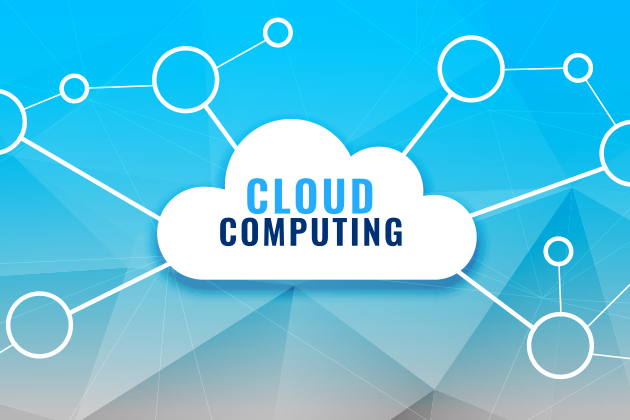LinkDaddy Cloud Services: Grasping Cloud Services Press Release Techniques
Secure Your Information: Trustworthy Cloud Services Explained
In an age where information breaches and cyber hazards loom large, the requirement for robust information protection steps can not be overemphasized, specifically in the realm of cloud services. The landscape of reliable cloud services is advancing, with security techniques and multi-factor authentication standing as pillars in the fortification of sensitive details.
Relevance of Data Security in Cloud Provider
Making sure durable information safety and security steps within cloud services is critical in safeguarding delicate details versus prospective hazards and unauthorized access. With the boosting dependence on cloud solutions for storing and processing information, the requirement for stringent protection procedures has actually ended up being much more important than ever before. Data violations and cyberattacks posture significant threats to companies, leading to economic losses, reputational damages, and lawful effects.
Implementing solid authentication devices, such as multi-factor verification, can assist avoid unauthorized accessibility to shadow information. Regular safety audits and susceptability evaluations are additionally vital to identify and address any powerlessness in the system immediately. Enlightening staff members about ideal methods for information security and implementing stringent accessibility control policies even more boost the general safety and security posture of cloud solutions.
Furthermore, compliance with sector policies and requirements, such as GDPR and HIPAA, is vital to ensure the security of sensitive data. Encryption methods, safe data transmission procedures, and information back-up procedures play crucial roles in securing details stored in the cloud. By focusing on data protection in cloud services, companies can mitigate dangers and build trust with their customers.
Encryption Methods for Data Protection
Efficient data protection in cloud services counts heavily on the application of robust file encryption methods to safeguard sensitive details from unauthorized gain access to and potential security breaches (Cloud Services). Security includes converting information right into a code to avoid unapproved customers from reviewing it, making certain that also if data is obstructed, it continues to be indecipherable.
In Addition, Transportation Layer Security (TLS) and Secure Sockets Layer (SSL) protocols are generally employed to secure data during transit in between the user and the cloud web server, supplying an added layer of security. Encryption crucial monitoring is crucial in maintaining the integrity of encrypted information, ensuring that keys are firmly stored and taken care of to avoid unapproved access. By carrying out strong encryption techniques, cloud provider can improve data protection and impart count on their individuals relating to the protection of their info.

Multi-Factor Authentication for Enhanced Protection
Structure upon the foundation of robust encryption strategies in cloud services, the implementation of Multi-Factor Verification (MFA) acts as an extra layer of safety to boost the defense of delicate information. MFA needs customers to offer 2 or even more kinds of confirmation prior to approving access to their accounts, making it considerably harder for unauthorized individuals to breach the system. This verification technique normally entails something the individual recognizes (like a password), something they have (such as a mobile gadget for obtaining verification codes), and something they are (like a finger print or face acknowledgment) By incorporating these aspects, MFA reduces the danger of unauthorized gain access to, even if one element is endangered - linkdaddy cloud services press release. This added security procedure is critical in today's digital landscape, where cyber dangers are progressively innovative. Executing MFA not just safeguards information yet additionally enhances individual confidence in the cloud provider's commitment to data safety and security and personal privacy.
Information Back-up and Disaster Recuperation Solutions
Implementing robust information back-up and catastrophe healing services is essential for safeguarding important info in cloud solutions. Data backup entails creating copies of information to ensure its accessibility in case of information loss or corruption. Cloud solutions provide automated back-up alternatives that routinely save data to safeguard off-site servers, lowering the danger of data loss as a result of equipment failings, cyber-attacks, or customer mistakes. Calamity recovery remedies focus on bring back data and IT infrastructure after a disruptive event. These solutions include failover systems that immediately switch over to backup servers, data duplication for real-time back-ups, Recommended Reading and healing methods to decrease downtime.
Cloud company frequently use a range of back-up and catastrophe recuperation choices tailored to satisfy various requirements. Businesses should assess their data requirements, recovery time goals, and budget plan restrictions to choose one of the most appropriate remedies. Routine screening and updating of back-up and disaster healing plans are important to ensure their effectiveness in mitigating information loss and decreasing interruptions. By implementing trustworthy information back-up and calamity recovery remedies, organizations can improve their information safety pose and keep business connection despite unpredicted events.

Conformity Criteria for Information Privacy
Provided the increasing emphasis on data defense within cloud services, understanding and adhering to conformity standards for information privacy is critical for organizations running in today's electronic landscape. Compliance standards for information personal privacy incorporate a set of guidelines and guidelines that organizations have to comply with to make sure the security of delicate info saved in the cloud. These standards are developed to protect data against unapproved access, violations, and misuse, thereby promoting count on in between services and their clients.
One of one of the most widely known compliance standards for data privacy is the General Information Defense Regulation (GDPR), which puts on companies dealing with the personal information of people in the European Union. GDPR mandates strict demands my explanation for information collection, storage space, and processing, imposing hefty fines on non-compliant organizations.
Furthermore, the Medical Insurance Transportability and Responsibility Act (HIPAA) establishes criteria for securing delicate individual health and wellness information. Abiding by these compliance requirements not just assists organizations avoid legal consequences but additionally shows a dedication to information personal privacy and safety and security, improving their track record amongst stakeholders and clients.
Conclusion
In verdict, making sure data safety in cloud services is extremely important to securing delicate information from cyber dangers. By applying durable security methods, multi-factor verification, and reliable information backup options, organizations can mitigate risks of data breaches and preserve conformity with information personal privacy criteria. Sticking to finest methods in data safety and security not only safeguards useful details but additionally fosters trust with consumers and stakeholders.
In a period where data violations and cyber dangers impend large, the requirement for robust data protection measures can not be overstated, specifically in the realm of cloud services. Applying MFA not browse around here only safeguards data but also improves individual self-confidence in the cloud solution supplier's dedication to data security and privacy.
Data backup includes producing duplicates of data to guarantee its availability in the event of data loss or corruption. linkdaddy cloud services. Cloud solutions use automated backup alternatives that routinely save information to protect off-site web servers, lowering the risk of information loss due to hardware failures, cyber-attacks, or individual mistakes. By implementing durable encryption methods, multi-factor verification, and trustworthy information backup services, companies can mitigate dangers of information violations and keep conformity with data personal privacy standards